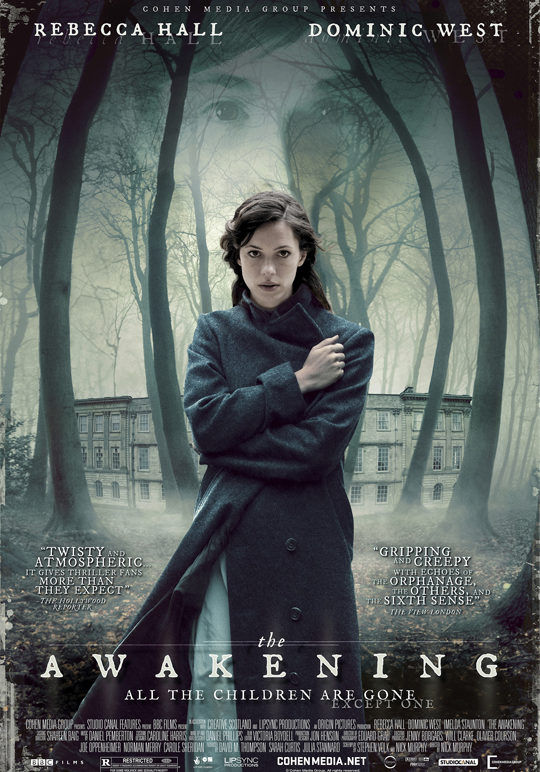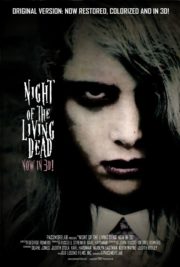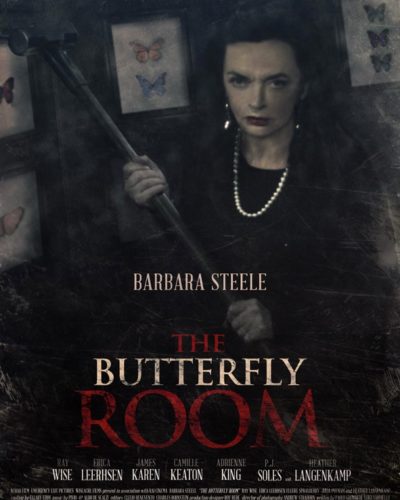Whispers from the Past: An Introduction to “The Awakening”
“I feel as if there is a presence in my house,” breathes Florence Cathcart, the sharp and skeptical protagonist of The Awakening, a film that deftly embroiders the fabric of ghostly folklore onto the loom of post-war trauma. Directed by Nick Murphy and released in 2012, The Awakening cloaks itself in the shadowy post-World War I landscape, spinning a tale of grief, denial, and the supernatural. At the heart of the film is Florence (played by Rebecca Hall), a professional debunker of hoaxes, who is summoned to a remote boarding school in England to investigate sightings of a child ghost. Skepticism meets mysticism, and what follows is a series of events that pry open the doors of perception to eerie dimensions.
Gloom-Soaked Elegance: Atmosphere and Tone
In the realm of the horror movie, atmosphere is king, and The Awakening reigns with a quiet, chilling sovereignty. The film refuses to rush, instead cultivating a sense of dread through deliberate pacing and the unsettling ambiance of the bleak English countryside. Director Nick Murphy’s approach is one of restraint; rather than assaulting the viewer with jump scares, he weaves tension into the narrative fabric. The boarding school, with its sprawling corridors and dusty classrooms, emerges as much a character as the people wandering its halls, reflecting the desolation and isolation at the film’s core.
Cinematic Shivers: Cinematography and Visuals
The film’s visual storytelling is a hauntingly beautiful dance of light and shadow. Cinematographer Eduard Grau masterfully employs muted color palettes, heavy with grays and blues, to paint a world somber and cold, mirroring the emotional state of our protagonist. Scenes are shrouded in half-light, coaxing the eye to search the peripheries for lurking shapes. Camera angles often peer from below or sweep through the abandoned crevices of the school, effectively crafting a voyeuristic sense of unease. The sparing use of special effects underscores this, crafting apparitions that are subtle yet arresting.
Echoes of the Unseen: Soundtrack and Sound
Soundscape is another piece of The Awakening’s puzzle of paranoia. Rather than an overwhelming score, the soundtrack whispers its presence — a spectral entity in its own right. Composed by Daniel Pemberton, the music intricately intertwines with the narrative’s emotional undercurrents. Sound effects are not mere adornments but essential tools: the clattering of a toy, an indistinct murmur in the darkness, the silence itself is masterfully manipulated to amplify the sense of the uncanny.
Shadows in Performance: Characters and Horror
The ghostly tale, rich with psychological torment, leans heavily on the shoulders of its cast to manifest its horror. Rebecca Hall’s Florence is a nuanced medley of stoicism and suppressed anguish — her performance as the rationalist at war with unseen forces is both grounded and arresting. The supporting actors, especially the cherubic yet unsettling pupils, add layers to the film’s exploration of belief and loss. The characters react to terror with a subdued realism, steering clear of melodrama, and contributing to the film’s overall atmosphere of unease.
Haunting Echoes: Themes and Impact
The Awakening taps into the vein of classic ghost stories while infusing it with psychological depth. The horror elements strike a balance between supernatural phenomena and the horrors wrought by personal tragedy. The film smartly employs its phantoms as metaphors for unresolved grief and wartime loss, thereby resonating with viewers on a level deeper than instinctual fear. When it comes to shaking its audience, the film opts for a haunting journey rather than visceral terror. It startles but rarely shocks, crafting a tapestry of dread that is more about the lingering touch of the past than the brutal imprint of the present.
Final Apparition: The Verdict on “The Awakening”
As a slice of the horror genre, The Awakening is a film that prioritizes mood over mayhem. It’s a slow-burning phantom carriage that delivers its chills in soft whispers, making it an exquisite choice for those who favor atmosphere over action in their terrors. Its cerebral and emotionally resonant approach might not satisfy every horror aficionado’s thirst for blood but will certainly appeal to viewers who relish psychological subtlety and narrative depth. The film stands as a testament to the genre’s capacity for elegance and existential contemplation.
In conclusion, The Awakening is a film that haunts rather than horrifies, ensnaring with its gothic charm and reflective scares. It boasts a well-crafted world rife with shadows and a pervasive sense of loss, ensuring its place in the echelons of thought-provoking horror. While not groundbreaking, it is a well-executed homage to the ghost stories of yore and a recommendation to those inclined towards the spectral and the mournful strains of horror’s wide orchestration.
Content Warning: The film contains themes of death and loss, which may be triggers for some viewers.




